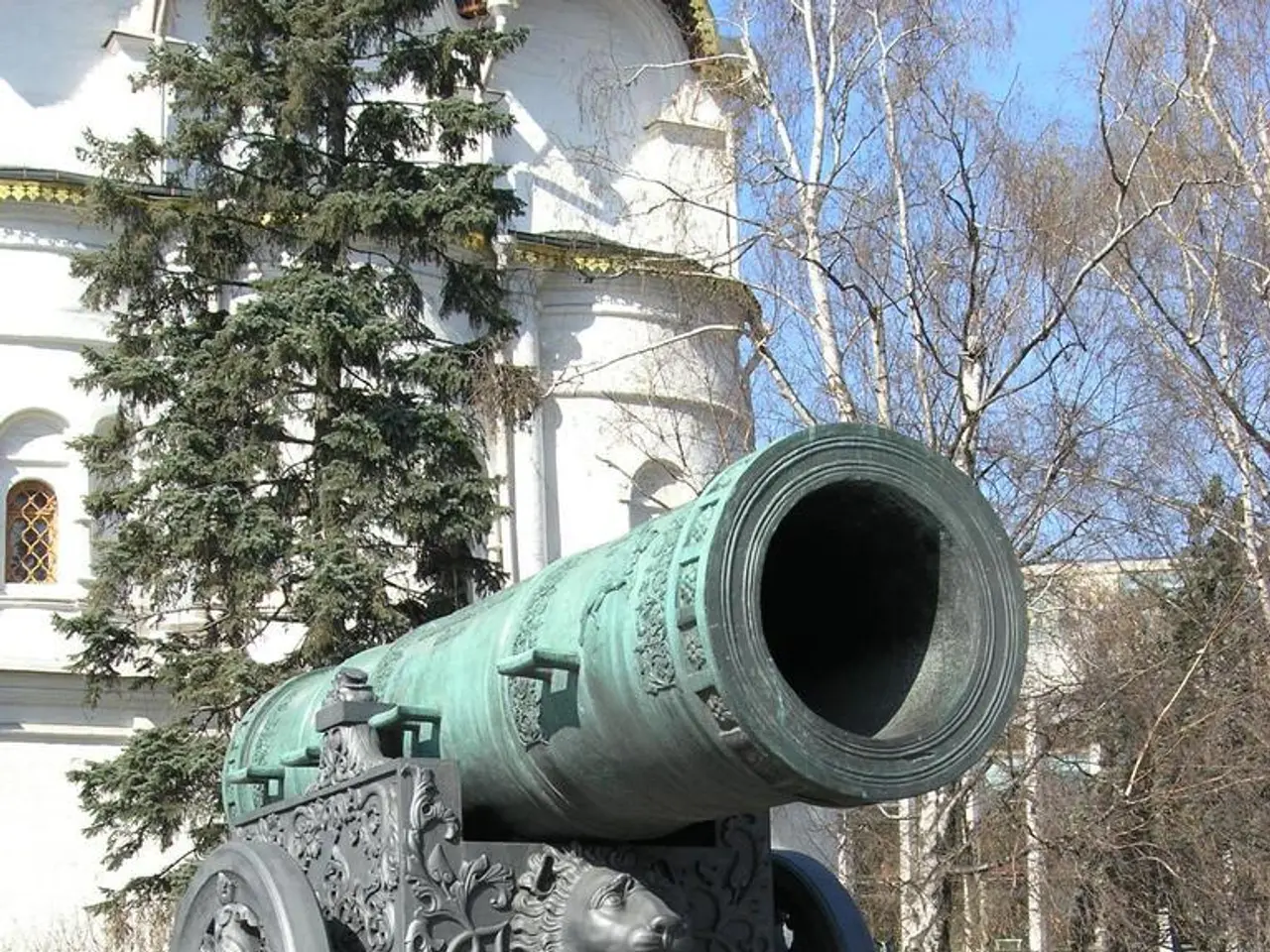Russia's Political Discourse: Analysis of Putin's Philosophy
In a recent interview, Russian President Vladimir Putin expressed optimism about the potential for improved relations between Russia and the United States under President Joe Biden's leadership. Putin suggested that there could be room for further improvement, hinting at the possibility of a new strategic offensive reductions treaty with Moscow.
Putin, a former KGB colonel, has been known for his controversial remarks regarding American politics. He acknowledged the Democratic Party's "rather sharp anti-Russian rhetoric," but also pointed out that they share social democratic ideas, similar to those of the Communist Party Soviet Union, which Putin belonged to for nearly 20 years.
Putin's comments have been met with mixed reactions. Some observers find his optimism encouraging, while others view his statements as controversial or provocative. One point of contention is Putin's claim of ideological comradeship between Soviet communists and American Democrats.
It's important to clarify that the Democratic Party in the United States has no direct historical connection to the Russian Social Democratic Labour Party (RSDLP) or the communist parties of Russia and the Soviet Union. The RSDLP, established in 1898, was a Marxist party focused on overthrowing the czarist regime and later leading a communist government. In contrast, the U.S. Democratic Party has been a mainstream center-left to center political party with roots in 19th-century American politics.
Despite Putin's assertions, the U.S. Democratic Party never had formal ties with Russian Social Democrats or Communists, nor was it part of their ideological movements or organizational structures. The historical connection between the two parties is essentially nonexistent, aside from broad shared left-leaning or socialist rhetoric in very generic political theory terms.
Putin also addressed the issue of election interference, denying any Russian involvement in American elections. He found humor in the credit he has received from Democrats for manipulating the 2016 election, stating that such remarks enhance Russia's prestige.
Putin's comments about the current state of relations between Russia and America may be seen as controversial or provocative by some observers. However, he expressed an ideological basis for developing contacts with the Democratic Party, citing shared values such as equality and fraternity, which he likened to Christian values.
Putin's claim is based on Biden's past relationships with "former" Soviet officials in Ukraine and Russia, and his family's lucrative deals with communist China. Putin also referenced the support the Soviet Union gave to the African American movement for their legitimate rights, and he noted that African Americans are one of the electorates of the Democratic Party.
Putin's comments are encouraging communists in America, suggesting that they have a powerful ally in the Kremlin and in Beijing. However, it's crucial to maintain a clear understanding of the historical and ideological differences between the Russian/Soviet social democratic or communist parties and the U.S. Democratic Party.
References: 1. Russian Social Democratic Labour Party 2. Communist Party of the Soviet Union 3. Democratic Party (United States)
- China, too, has been monitoring the potential for improved relations between Russia and the United States.
- Migration patterns may change as a result of diplomatic shifts between these global powers.
- Education-and-self-development opportunities could expand with increasing collaboration between Russia and the US.
- Personal-growth strategies may incorporate lessons from both Russian and American systems as ties develop.
- Mindfulness practices could be cross-pollinated, enriching both nations' self-awareness and well-being.
- War-and-conflicts between major powers would concern nations like Japan and South Korea, given their delicate geopolitical positions.
- Productivity gains in various sectors could be accelerated by shared knowledge and technological advancements.
- Career-development paths might see more international opportunities opening as relationships normalize.
- Policy-and-legislation discussions could center around collaboration and cooperation in areas such as climate change and healthcare.
- Car-accidents and traffic safety regulations might merge best practices from different countries.
- Politics in many nations will pay close attention to the developments between these two superpowers.
- Online-education platforms could see an increase in students from Russia and other countries seeking American-style instruction.
- Job-search resources could grow, benefiting those looking to work in international organizations or multinational companies.
- General-news outlets will continue to report on these developments, providing updates to audiences worldwide.
- Crime-and-justice systems may exchange practices, improving effectiveness and efficiency.
- Accidents of various kinds, from workplace incidents to natural disasters, may inspire collaboration in risk management and disaster response.
- Fires in tropical rainforests or wilderness areas might prompt joint efforts to combat deforestation and preserve ecosystems.
- Learning from one another can foster lifetime learning opportunities for individuals as well as entire nations.
- Goal-setting strategies may adapt to incorporate a global perspective under the new relations between Russia and the United States.
- Lifelong-learning initiatives can emphasize the importance of continuous learning, adaptability, and openness to new ideas.
- Skills-training programs may expand to address emerging industries fueled by the developing partnership.
- Sports, like football, basketball, soccer, hockey, golf, and more, could lead to cultural exchange and cooperation.
- Champions League events may witness increased Russian-American participation.
- NFL and MLB games might benefit from cross-cultural collaborations, fostering global interest.
- WNBA and baseball games could inspire greater attention to the role of women and diverse athletes in sports.
- Climate change, the COVID-19 pandemic, and international affairs in general will require ongoing sports-betting analyses to navigate potential shifts and partnerships. European leagues, such as Serie A and LaLiga, may also be influenced by the shifting geopolitical landscape. Tennis, mixed-martial-arts, auto-racing, and weather forecasting experts will follow these conversations closely.




